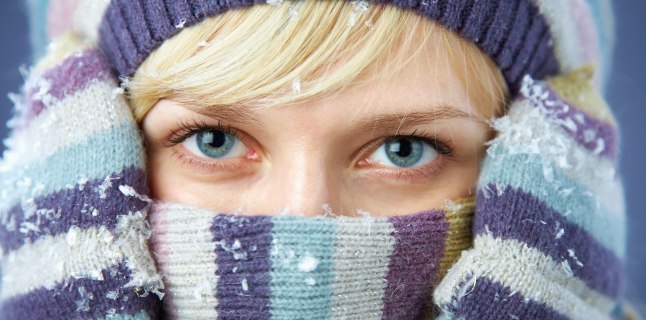How does the cold affect our health?

Cold and moisture have a major influence on the human body, the most exposed being the elderly, the low and the associated. Also, cardiac, diabetic, asthmatic, hypertensive, and chronic kidney disease are among the most vulnerable categories of patients in the winter. The heart is one of the organs most affected by exposure to cold and moisture, the ability of this organ to pump blood into the body being hampered by constriction narrowing of blood vessels. Concretely, in the cold season, heartbeats are at risk of having a heart attack or a heart attack. Therefore, it is advisable that these patients avoid exposure to cold as far as possible, come out of the house for short distances and be dressed properly, cover the neck, the hat is compulsory, and shoes that keep warm. It would be preferable to use several rows of overlapped clothes than a very thick robe.
is influenced by cold. Concretely, when outside is frost, blood vessel diameters decrease, blood flow decreases and blood pressure increases. In addition, hypertensive patients respond more heavily to treatment when outside is frost, thus explaining the increase in stroke incidence. The patient suffering from a cardiovascular disease also has an increased risk of suffering a heart attack. Therefore, the hypertensive patient should always have a nitroglycerin pill and follow the treatment prescribed by the cardiologist.
It is recommended to have one, to hydrate properly and avoid alcohol consumption. It is known that in large amounts, alcohol can increase tensions, and hypertension becomes refractory to treatment. Moisture, frost and wind can accentuate. In fact, breathing cold air can cause severe asthma attacks and may make the baby or adult's condition worse. Also this season there is an increase in respiratory diseases, the most exposed are the children and the elderly.
The cold also aggravates the symptoms of rheumatic diseases. Therefore, it is indicated that patients diagnosed with osteoarthritis, with or with osteoarthritis, degenerative diseases, as far as possible, avoid the state for a long time in the cold. More specifically, the arthrosis manifested by the progressive destruction of cartilage from the joints is directly influenced by the change of the time. Thus, the pains of the joints, the main manifestations of them, are influenced and accentuated by cold and moisture. Generally, in such cases, non-steroidal anti-inflammatory and non-steroidal anti-inflammatory drugs are recommended which are recommended by the physician only and are intended to relieve pain.
Also, the patient should lose weight in order to reduce the pressure on the joints affected by the arthrosis. .
Source : sfatulmedicului.ro
Views : 3086
Popular Article
- (photo) Nude becomes art.
Posted: 2018-03-17, 9762 views.
- The harmful effects of air conditioning on the skin
Posted: 2017-06-08, 8471 views.
- 3 causes of dyed hair discoloration
Posted: 2017-06-15, 8352 views.
- Why early puberty occurs in girls: symptoms, favors, diagnosis and treatment
Posted: 2017-10-24, 8194 views.
- Good or bad skin treatments in the hot season
Posted: 2017-06-07, 7923 views.
Recommendations
- (photo) Nude becomes art.
Posted: 2018-03-17, 9762 views.
- The harmful effects of air conditioning on the skin
Posted: 2017-06-08, 8471 views.
- 3 causes of dyed hair discoloration
Posted: 2017-06-15, 8352 views.
- Good or bad skin treatments in the hot season
Posted: 2017-06-07, 7923 views.
- Risks of practicing sports on hot days
Posted: 2017-06-12, 7505 views.
 4 effective ingredients in the fight against acne.
4 effective ingredients in the fight against acne. How to get rid of hiccups fast
How to get rid of hiccups fast The wheat bran diet: the secret of lost pounds as if by magic
The wheat bran diet: the secret of lost pounds as if by magic The recipe that will sweeten your soul this weekend!
The recipe that will sweeten your soul this weekend!  Is it dangerous or not to refreeze meat after thawing it?
Is it dangerous or not to refreeze meat after thawing it?  The unusual sign of diabetes indicated by saliva.
The unusual sign of diabetes indicated by saliva. What to drink to boost your immune system.
What to drink to boost your immune system. 10 foods that help you never age.
10 foods that help you never age. What actually happens in your body if you drink a cup of coffee for breakfast
What actually happens in your body if you drink a cup of coffee for breakfast 5 surprising benefits of chia seeds
5 surprising benefits of chia seeds